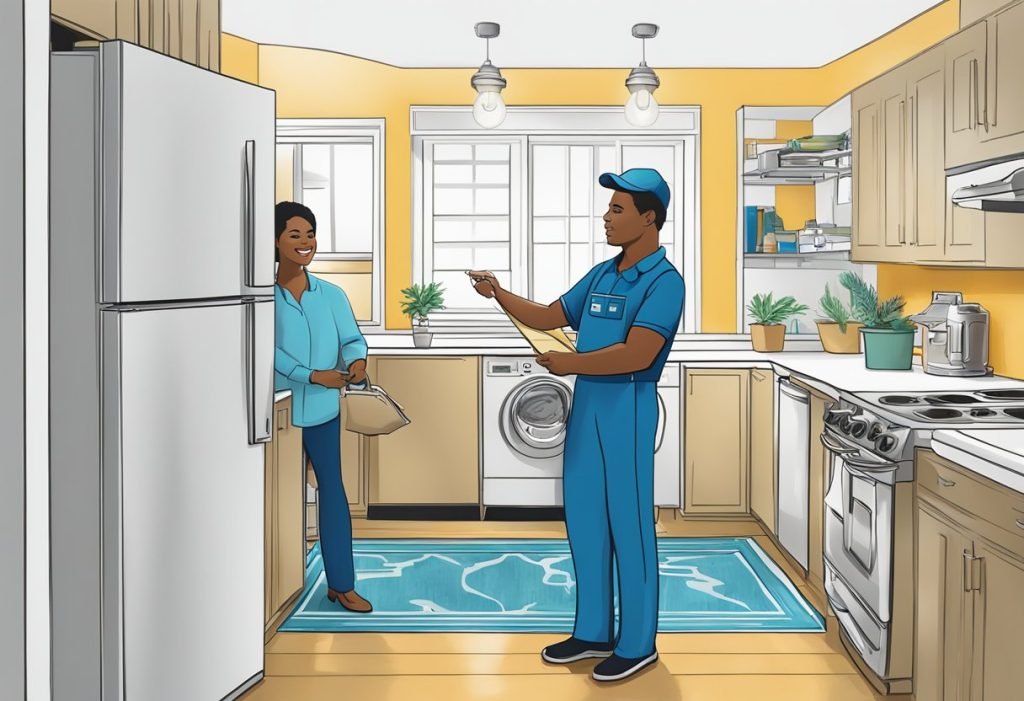Last Updated on March 18, 2024 by Kelvin Nielsen
If you’re a landlord or tenant in Florida, it’s important to understand the state’s laws regarding utilities. These laws govern everything from who is responsible for paying utility bills to what happens if a utility is shut off.
By familiarizing yourself with these laws, you can avoid legal trouble and ensure that your rights are protected.

Under Florida Landlord Tenant Law, landlords are generally responsible for providing tenants with essential utilities like water, electricity, and gas. This means that landlords must ensure that these utilities are in good working order and that they are paid for.
However, tenants are responsible for paying for any non-essential utilities, such as cable television or internet service. If a tenant fails to pay for these utilities, the landlord may be able to shut off the service.
It’s also important to understand what happens if a utility is shut off due to non-payment. In Florida, landlords are generally prohibited from shutting off a tenant’s utilities as a form of retaliation.
If a landlord does shut off a tenant’s utilities, the tenant may be able to take legal action to have them restored. Additionally, landlords may be required to provide tenants with a certain amount of notice before shutting off a utility.
Related Posts:
- Renters Rights in Florida for Repairs
- What Are My Legal Rights as a Tenant in Florida?
- Florida Landlord Right to Show Property
Landlord and Tenant Responsibilities
When it comes to utilities in a rental property, both the landlord and tenant have responsibilities to ensure that essential services are provided and maintained. Here are some key points to keep in mind:
Provision of Essential Services
As a landlord, you are responsible for providing essential services such as water, heat, plumbing, hot water, doors, windows, and emergency heating. These services must be maintained in good working order and meet health and sanitary codes.
As a tenant, you are responsible for keeping the property clean and sanitary, as well as using the utilities in a reasonable manner. If you notice any issues with the essential services provided by the landlord, you should notify them immediately.
Related Post: Tenant Relocation Allowance in Florida: What You Need to Know
Repairs and Maintenance
The landlord is responsible for repairs and maintenance of the rental property, including the utilities. If there is a problem with any of the utilities, the landlord must take action to fix the issue promptly.
As a tenant, you are responsible for notifying the landlord of any necessary repairs or maintenance as soon as possible. You should also take care to use the utilities in a responsible manner to prevent unnecessary damage or wear and tear.
Utility Interruptions and Tenant Remedies
If there is an interruption in utility service, the landlord must take action to restore service as soon as possible. If the interruption is due to the landlord’s failure to maintain or repair the utility, the tenant may be entitled to a remedy such as a rent reduction or termination of the lease.
As a tenant, you should notify the landlord of any utility interruptions as soon as possible. If the landlord fails to take action to restore service, you may need to seek legal assistance to enforce your rights.
Disclosure: The content herein isn’t a substitute for advice from a professional attorney. It’s only meant to serve educational purposes. If you have a specific question, kindly seek expert attorney services.
Sources: FL Statutes Chapter 83 Part II, Warranty of Habitability in Florida, Florida Landlord Responsibilities: A Comprehensive Guide

Amanda Rose is a seasoned landlord with 13+ years of expertise in overseeing diverse properties. Her adept management spans single and family homes, along with multi-family apartments and condos, across Wyoming and South Dakota. Her commitment and proficiency have cemented her status as a thriving property management professional.
She is a member of the following organizations: Wyoming Landlord’s Association, National Association of Residential Property Managers (NARPM), Wyoming Apartment Association, South Dakota Multi-Housing Association (SDMHA), and South Dakota Landlord Association (SDLA).







